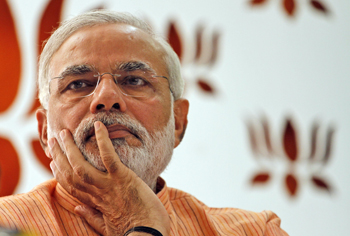Patna, Oct 18: The weather in Bihar has suddenly changed dramatically, and so has the political permutation and combination.
Before the first vote was cast on October 12, it was nearly impossible to forecast the Assembly election result, so close was the fight between the BJP-led NDA and the Nitish Kumar-led grand alliance.

In these 81 constituencies, out of the total 243 seats in Bihar, the turnout of women voters has been remarkably better. This is not only a clear indication of the growing aware-ness (about voting rights) among them but could possibly spell trouble for the BJP-led alliance.
While working out the caste arithmetic, BJP strategists had perhaps not calculated how this section, miffed with the steep rise in prices of pulses and onion, could upset all the BJP formulae.
Chief Minister Nitish Kumar and RJD chief Lalu Prasad, during the fag end of the campaign, did not miss the opportunity to remind rural woman voters how their kitchen budget had gone haywire due to Prime Minister Narendra Modi, who had promised “achchhe din” and assured control of prices if voted to power during the Lok Sabha polls.
The lengthy queues of Muslim women with men of the family during the first two phases of polling should also be an eye-opener for NDA mandarins.
After all, leaders like Haryana Chief Minister Manohar Lal Khattar, who said Muslims would have to give up beef if they want to stay in India, party MP Shatrughan Sinha, who said onions could make the BJP cry, and Mohan Bhagwat, who reiterated his stand on review of reservation, have done more damage than the saffron camp had anticipated.
Another noticeable point is the large turnout of weaker sections, particularly Dalits and the Extremely Backward Classes (EBCs). While it had appeared before the polls that the EBC and Dalit votes would split vertically, reports from the interiors indicate Nitish Kumar remains the favourite.
The JD(U) strongman appears to be reaping a rich harvest from the cycle, uniform and scholarship schemes for students, and Rs 10,000 sops to those who pass their Class X examination in first division.
This Deccan Herald correspondent, who travelled nearly 2,900 km in the last 45 days — from Bhagalpur in the east to Buxar in the west and Imamganj in the south to Kalyanpur in the north — found parents of such students, particularly girls, expressing solidarity with Nitish.
Their only common grouse was why he had joined hands with Lalu, who still symbolises lawlessness.
Split
Nitish was quick to respond that had he not aligned with Lalu, secular votes would have split, much like it had happened during the Lok Sabha elections, and would have helped the BJP.
In light of unfavourable news, Modi, the BJP’s biggest campaigner, has reportedly cut down his rallies in Bihar on the pretext of the Navratras.
The grand alliance leaders have taunted: “If he was in the US during last year’s Navratra, why is he now shying away from Bihar? Has he read the writing on the wall?”
But until the last three phases of voting take place on October 28, November 1 and
November 5, the alliance should not be overconfident. One small error by either camp could change the tide in no time.





Comments
Add new comment